El proyecto “Filosofía para niños”, inspirado por Matthew Lipman, tiene como voluntad enseñar a adultos y a niños a dialogar, razonar, buscar e indagar en el pensamiento. Este proyecto ha sido considerado por el Consejo de Europa como una herramienta para una educación democrática, basada en el diálogo y la resolución no violenta de los problemas.
La filosofía es amor al conocimiento. Hacer filosofía en la escuela con los niños, que no estudiar filosofía, puede ser un elemento que ayude a mantener el espíritu del aprendizaje. El niño se coloca en la actitud ingenua del filósofo, la contraria a la actitud que hay detrás de la frase “eso ya lo sé”.

Matthew Lipman (24 de agosto 1923 – 26 de diciembre 2010) fue un filósofo, lógico e investigador sobre pedagogía estadounidense.
La filosofía para niños puede crear espíritu de investigación desde la constatación de que no sabemos y queremos saber. De hecho según este programa se proponen unas clases de filosofía en las que los protagonistas son los mismos alumnos, no un temario lleno de contenidos que tienen que estudiar. Porque lo que se pretende es desvelarles el gusto por la investigación colectiva.
Se hace filosofía en el aula para intentar que los alumnos, todos y cada uno de ellos, se conviertan en personas más razonables, en ciudadanos y ciudadanas participativos con capacidad de formarse opiniones propias basadas en criterios consistentes. Para que sepan afrontar los retos de la vida de forma creativa.

Ilustración de Donatien Mary para el libro ‘El fantasma de Karl Marx’
¿Por qué es importante para el desarrollo infantil estudiar filosofía?
Primeramente porque los niños tienen la capacidad de pensar, de preguntar, de interrogar, de indagar cuestiones… es algo que está y mucho en el potencial de los pequeños. Y además porque les ayuda enormemente a desarrollar habilidades para su vida adulta y profesional: la capacidad de criticar, de dialogar, de llegar a consensos, de cuestionar eso que damos por hecho. Son habilidades que, si se entrena ya al niño en ese conjunto de facultades, permitirán que tenga una formación más integral y más sólida. Será más fácil que cuando el niño llegue a la edad adulta tenga buenas habilidades para la actividad laboral.
Por tanto, se pueden identificar los beneficios no tanto de enseñar filosofía a niños sino de filosofar con ellos o filosofar a partir de sus preguntas.

Ilustración de Laurent Moreau para el libro ‘Un día loco en la vida del profesor Kant’
Los beneficios de estudiar humanidades.
En una época en la que todo es tecnología, más prioritario que aprender filosofía parece que sea el que los niños sepan manejar un ordenador. Pero es que en el fondo, si uno no tiene criterio a la hora de utilizar un ordenador tampoco le va a servir de mucho.
Es algo en lo que muchos intelectuales están insistiendo: las humanidades son absolutamente necesarias para una sociedad tecnológica y para una sociedad científica. Porque las humanidades son las que aportan criterio, alternativas, pensamiento crítico y pensamiento creativo. Nos dan posibilidades realmente de abarcar habilidades ―todas las habilidades que la historia de la filosofía nos ha regalado― pero también actitudes ―actitudes de descubrimiento, actitudes de admirarse, actitudes de sorprenderse, actitudes de ir más allá―, y todo eso es lo que la tecnología pura y dura puede no dar. Necesitamos ese empujón de las humanidades en general para educar en el asombro.

Ilustración de Donatien Mary para el libro ‘El fantasma de Karl Marx’
La filosofía en la educación, cuestión de metodología.
No deberíamos dejar que la filosofía fuese sólo una disciplina académica más, ni pensar que no ofrece muchas más ventajas respecto de las demás. No deberíamos quedarnos sólo con que la filosofía forma parte de nuestro legado cultural y que podemos transmitirla como cualquier otra materia. Eso no es lo que la filosofía puede aportar a la educación y a la sociedad, y esa es la clave.
No se trata de hacer una mejor educación como un fin en sí mismo sino de vivir en un mundo mejor. Y eso sólo es posible cuando dejamos la filosofía académica y nos centramos en el método mismo del filosofar.
Lo mismo podríamos decir con las ciencias, porque lo que nos enseñan en la escuela son los resultados acabados que nos dan los libros de texto que no tienen nada que ver con el quehacer de los científicos. La clave está en ir a los procesos y no a los resultados, la clave está en una metodología cooperativa y en una comunidad de investigación donde se investigan las cosas que nos interesan a todos y donde hay un absoluto rigor en los procedimientos.
Muchas veces en las clases de filosofía, en aulas preuniversitarias y en las de la universidad, se lanzan conceptos pero no se enseña a pensar, a indagar, a cuestionar, a interrogar. Y eso tiene como consecuencia la degradación de esa materia o su marginalización ―”no sirve para nada”, “es obsoleta”, “sólo hay que memorizar”, “vaya royo”, “es inaguantable”―. Sin embargo, cuando se empieza a impartir filosofía a niños y a jóvenes en ellos el interés se despierta porque está ahí la pregunta, se utiliza el método.
Por ejemplo el método socrático, un método paradigmático en filosofía. Sócrates lo que hacía en la plaza ateniense ―en el ágora― era intentar aclarar lo que era la virtud. Pero no lo hacía yendo con un rollo preestablecido diciendo “la virtud es…”, sino preguntando: “¿qué dices tú que es la virtud, o el bien, o la verdad, o qué podemos esperar después de la muerte?”. De esa forma el niño empieza a buscar respuestas.

Ilustración de François Schwoebel para el libro ‘El genio maligno del señor Descartes’
Qué interés muestran los niños en las clases de filosofía.
Cuando a los pequeños se les hace ser protagonistas y no solo sujetos pasivos, se sienten estupendamente en ese papel. Para ellos supone una abertura impresionante despertar esas cuestiones que ya les preocupan pero que nunca suelen estar en el aula. Poder hablar de cuestiones como la muerte, la amistad, el compromiso, la mentira, la verdad… son cuestiones que no aparecen estrictamente en ningún programa pero para ellos son preocupaciones fortísimas: “me ha traicionado un amigo”. ¿Qué pasa? ¿Qué es la traición? Se trata de hablar de esas cosas, de hacer filosofía pero a partir de sus propias experiencias, haciendo que los niños sean realmente los protagonistas de los intereses.

Ilustración de Laurent Moreau para el libro ‘Un día loco en la vida del profesor Kant’
A partir de qué edad se puede dar filosofía a los niños.
Pensamiento y lenguaje son muy parejos, por tanto se puede comenzar a filosofar a partir de que los niños pueden hablar. El tono y el nivel no será el mismo, pero sí la preocupación. Cuando los niños pasan la “etapa del por qué” están interesadísimos en cuestiones tremendas: en la otra vida, en la muerte, en el nacimiento…
El niño no sólo pregunta cómo ha pasado eso sino que quiere saber para qué ha pasado:
― El abuelo se ha muerto.
― ¿Cómo se ha muerto?
― Pues mira, ha tenido una enfermedad de tipo terminal y murió.
― Pero, ¿por qué tenemos que morirnos?
Y ahí ya estamos ante una pregunta filosófica. Espera que lo piense, ¿por qué tenemos que morirnos? Porque de entrada no está tan claro que tengamos que morirnos, sin embargo el niño nos hace una pregunta que nos pone ante las cuerdas. Y tenemos que empezar a dar respuestas ―que no es una― a esta posible pregunta.
No hay por tanto una edad ideal. Más que un momento puntual es una cuestión de crear hábitos y de empezar cuanto antes. Lentamente, despacito, lúdicamente ―se puede uno divertir muchísimo en un aula de filosofía―. Se puede trabajar con historias, con juegos, con cine, con pintura… de hecho lo que se intenta es reflexionar y llegar a interpretar que nos sugiere por ejemplo un cuadro. A un niño le sugerirá pobreza y a otro tristeza, y ahí ya se tiene un trabajo espontáneo y directo. Todas las edades son buenas para filosofar.

¿Qué es la filosofía?
Educación en valores. Qué aporta la filosofía en el aula.
Cuando se habla de la infancia, de la adolescencia y de la juventud se carga mucho siempre en el hecho de que no tienen valores, que no tienen educación, que no saben estar, que no saben realmente el lugar que les corresponde, que son pequeños tiranos.
Pero los valores no son específicos de la clase de filosofía. Sí que es cierto que en esa asignatura se tematizan los valores y se hace una reflexión sobre ellos, pero la educación de los valores es algo transversal. No se puede imputar toda la responsabilidad de transmisión de valores ni a filosofía, ni a religión ni a ciencias naturales.
Es cierto que en el aula, cuando se filosofa, aparecen valores como el respeto ―este señor ha explicado estas ideas―, o la escucha ―que es fundamental―. Y no sólo están presentes los valores sino que están presentes de una forma vivencial. Por ejemplo se habla poco del respeto, porque no hace falta hablar mucho del respeto o de la generosidad o de saber escuchar. Lo que hay que hacer es practicarlo y ponerse en situación.
Proponer a los chavales trabajar haciendo filosofía permite que esos valores estén encima de la mesa, porque si uno no escucha es incapaz de dialogar. La praxis de ese diálogo conlleva conocimientos, porque hay que buscar información para poder hablar seriamente. Pero además hay que evaluar esa información y hay que tener criterios para evaluarla. Hay que guardar una serie de actitudes, por ejemplo todo el mundo tiene derecho a disentir pero nadie tiene derecho a insultar. Es importante que los niños lo entiendan y que lo internalicen.
Los niños no van a aprender a ser respetuosos copiando mil veces “voy a ser respetuoso”, porque hay muchas cosas que no se aprenden como la tabla de multiplicar y la filosofía así entendida es una de ellas. Por eso la herramienta clave es el diálogo.
Uno de los principales problemas es que esto casi nunca se evalúa porque la escuela centra su evaluación en factores principalmente cognitivos y principalmente individuales. Y tanto la filosofía como la ciencia no la hacen personas individuales, la hacen comunidades. Deberíamos ir hacia una evaluación de los grupos ―un grupo es siempre más que la suma de los individuos que lo componen― o si no algo se va a quedar cojo.
La filosofía dialógica, como la entendía Sócrates, en un proceso de búsqueda de la verdadque el profesor no tiene ―porque Sócrates tampoco la tenía, y aun hoy en toda la cultura occidental estamos buscando esas verdades universales que no sabemos donde estarán―, pero con esa humildad socrática de ponernos todos en camino, todos juntos.

Ilustración de François Schwoebel para el libro ‘El genio maligno del señor Descartes’
El papel del profesor de filosofía.
El profesor va a clase a crear el ambiente, y sobre todo ayuda a los niños a aclarar palabras que a veces utilizamos de un modo muy superficial: ¿qué es felicidad? ¿Qué es libertad? ¿Qué es amor? Si en un aula de segundo de bachillerato planteamos la cuestión: “¿el teléfono móvil nos ha hecho más libres?” El debate está servido. “¿Qué es libertad para ti?”, ahí empieza el debate y empieza la búsqueda. Porque Kant dice algo sobre la libertad, y Sartredice otra cosa, y Schopenhauer dice otra cosa, y Platón dice otra. Y ahí es donde los chicos empiezan a mover la búsqueda sobre quienes han hablado con autoridad sobre lo que es la libertad.
Lo interesante de este proyecto dialógico es que no se pone a los chicos ante las cuerdas de un filósofo o de una autoridad, sino que van puliendo entre ellos. Entre los ejemplos, las razones, las experiencias… todo eso conforma un magma que va puliendo ese concepto de libertad, de muerte, de amor, de fidelidad o de justicia. Pero no les acaba de dar el concepto final sino que les deja sensibles para seguir buscando.
Se trata de inocular el virus más que de dar respuestas definitivas, que uno se da cuenta que al cabo de poco dejan de ser definitivas. Se consigue buscar ese espíritu indagador y esas ganas de descubrir. Se consigue en definitiva que los niños y jóvenes sean más sensibles, para que cuando lean un titular de un periódico puedan ver dónde está el problema, el prejuicio implícito, el doble juego de palabras. Se trata de hacerles más atentos a la lengua, al discurso y al oír al otro. Se trata más de aportarles esto que no de dar conocimientos, teorías, corrientes… aunque evidentemente quien da esas clases debe de ayudarse de los maestros.
Además de inocularles el virus hace falta aportar a niños y jóvenes las herramientas para desenvolverse en ese proceso. Hace falta capacitarles y dotarles de un pensamiento mucho más crítico, mucho más creativo y mucho más riguroso. Porque a la hora de afrontar qué es la felicidad, o a la hora de afrontar cómo progresa la ciencia o a la hora de afrontar cualesquiera problemas ―que todos ellos son sumamente interesantes y relevantes en la sociedad del siglo XXI, y en ello tenemos que estar porque aquí vivimos― tenemos que hacerlo muy rigurosamente, porque es mucho lo que nos jugamos.

Ilustración de Vincent Sorel para el libro ‘El filósofo-perro frente al sabio Platón’
La diferencia entre los niños de hoy y como éramos años atrás.
Los niños de ahora lo que tienen es una gran libertad expresiva. No son esclavos de los prejuicios ni de lo políticamente correcto y por lo tanto entran en el debate con una gran sinceridad. Lo expresan quizás no de un modo matizado ―no tienen las herramientas conceptuales para precisar y distinguir, eso se les tiene que ofrecer―, pero sí que es verdad que no tabuizan nada. En cambio, en debates adultos sabemos que hay temas que son “temas problemáticos” y que dejamos en un cajón. Los niños y los jóvenes no, ellos ponen cualquier tema encima de la mesa y eso es algo extraordinario. Cuanto más jóvenes más facilidad tienen, menos domesticados están y más espontáneos aparecen.
Los niños de hoy tienen a su favor que tienen más oportunidades. Tienen muchas más oportunidades de viajar, de saber, de conocer, de tener informaciones. Lo que ocurres es que debemos ayudarles a organizar. Como hay más información y más posibilidades de comunicación a veces quizás nos perdemos en un laberinto, y el problema o el trabajo de los educadores sería orientarles.
Cuando un niño busca y en el ordenador escribe la palabra “libertad” o “Immanuel Kant”, se encuentra allí con mareas de información. Cómo distinguir que una cosa es la información que viene de la enciclopedia británica o de la biblioteca de Stanford de filosofía ―que son fuentes serias y fiables― de cualquier iluminado que se levanta por la mañana y escribe lo que Kant dijo.

Ilustración de Donatien Mary para el libro ‘El fantasma de Karl Marx’
¿Cómo ayudar a los niños a formular preguntas abiertas?
En realidad ese tipo de preguntas deberían ser imitadas por los niños. Somos los adultos los que deberíamos hacernos esas preguntas y no limitarnos sólo a preguntas de sí o no, de blanco o negro. Si los adultos formulamos preguntas abiertas también los niños las formularán.
Por otro lado el mundo de los niños es mucho más amplio que el mundo del conocimiento o de la ciencia o del saber, que pide respuestas concretas como el nombre de las capitales o las tablas de multiplicar. El mundo de los niños ―sobre todo cuando son más pequeños― es mucho más grande, incluye desde los juegos hasta distraerse hasta todo tipo de curiosidades. Por tanto hacer surgir estas preguntas no es problema, lo que ocurre es que a veces los adultos las ahogamos. Hay un momento ―a los cuatro años― en que los niños preguntan el por qué de todo, y entonces llega un momento en que los padres dicen “basta”, “porque sí”, “porque lo digo yo”.
Los niños son insaciables, son como esos filósofos importantes que tienen que descubrir el mundo. Y como tienen todo por descubrir todo es una pregunta y todo es una cuestión. Lo que deberíamos hacer los adultos es no ahogar esta curiosidad y, al revés, estimular esta capacidad exploradora de los niños ayudándoles, insistiendo nosotros en preguntas nuevas. No dando respuestas sino respondiendo con otra pregunta e intentando hacer una cadena. Esta sería una posible salida para esta necesidad que tienen los niños de respuestas, pero también y sobre todo de hacerse buenas preguntas.
La diferencia entre preguntas abiertas y preguntas cerradas es nuestra, no es de los niños. Los niños buscan seguridad, buscan siempre que cada pregunta tenga una respuesta. Ocurre que en seguida se dan cuenta de que no siempre es así. Ahí está la habilidad o el arte de educar, de demostrar que no todo tiene una respuesta y que la respuesta la ha de encontrar uno mismo. En los niños es inherente la pregunta pero también es inherente la necesidad de seguridad.

Ilustración de Laurent Moreau para el libro ‘Un día loco en la vida del profesor Kant’
¿Cómo ayudar a los niños a pensar? ¿Qué papel juega la filosofía?
Los niños y los filósofos tienen muchos elementos en común. Son dos colectivos que se preguntan por el mundo sin presuposiciones, sin prejuicios y con una cierta ingenuidad. Esas mismas preguntas que hacen los niños son las que uno tiene que desaprender en la edad adulta para volverlas a relanzar. En definitiva toda la historia de la filosofía no es otra cosa que plantearse las mismas preguntas que se hacían los presocráticos o los filósofos griegos: qué es la justicia, qué es la belleza, qué es la corrección, qué está bien y que está mal… son las preguntas que se hacen los niños porque se tienen que situar en el mundo.
Filosofía y niños tienen en común este intento de buscar respuestas y una cierta seguridad. Aun sabiendo que quizás no encontraremos esas respuestas eso no nos aparta de la dinámica de buscarlas. Un poco como ha pasado con el mundo del arte ―cuando Pablo Picasso dice que él ha tenido que desaprender las técnicas para volver a ser un niño y poder pintar― la filosofía, a través del señor Lipman, ha hecho este ejercicio de ponerse en situación del filósofo originario y decir “por qué no ayudamos a los niños a pensar y a avanzar”.
En el proyecto “Filosofía para niños” se trabajan todos esos aspectos en la escuela de forma colectiva, es un escenario distinto al que los niños tienen en casa. No es una relación padres e hijos sino que es una relación de un grupo de iguales con un maestro que, en este caso, no es el que da las respuestas sino que es el que provoca preguntas y facilita esa labor de reflexión a los niños.
Los niños ―aunque las preguntas son siempre repetidas y los humanos llevamos siglos haciéndonos ciertas preguntas― no se sienten frustrados porque la respuesta siempre es original, siempre es propia y es la que uno busca y va encontrando poco a poco. Es estupendo el momento en que niños y niñas se dan cuenta de que “¡ostras, eso no lo había pensado nunca!” cuando otro alumno hace una pregunta que les sorprende, que no es nada del otro mundo para nosotros pero para ellos sí. Es entonces cuando esta dimensión colectiva adquiere una fuerza muy grande porque moviliza a todo el grupo. La pregunta en cuestión no es propia, es de una compañera o de un compañero, pero incita a los niños a investigar colectivamente.

Ilustración de Laurent Moreau para el libro ‘Un día loco en la vida del profesor Kant’
¿Qué aportó Matthew Lipman a la educación de la filosofía en las escuelas?
“Yo creo que los niños no sólo necesitan la filosofía sino que también la quieren. Los niños se emocionan con la posibilidad o la libertad de discutir las cosas por sí mismas. De repente experimentan una sensación de liberación”, decía Matthew Lipman.
Lo que Matthew Lipman planteaba en los años 70 no era enseñar filosofía sino hacer filosofía, que los niños y jóvenes aprendiesen a pensar. Y aprender a pensar es diferente a dar unos contenidos sobre la filosofía.
Cuando los niños aprenden a pensar lo hacen a partir de sus propias preguntas y por tanto el punto de partida siempre es personal y motivador, porque hay algo que a mí me interesa resolver y lo hago en grupo acompañado de otras personas. Este es un punto fundamental del proyecto “Filosofía para niños” y es una gran intuición de Lipman. El hecho de trabajar haciendo filosofía en grupo, y el hacerlo no a partir de materiales convencionales sino a partir de materiales más de expresión. A partir de la literatura, de las artes y de otras cuestiones que ligan con la razonabilidad pero que ligan también con la parte sentimental y emocional, de cómo nos sentimos descubriendo las cosas y explicándolas. El proyecto aporta la frescura de partir de las necesidades de los niños, de hacerlo en grupo ―entre iguales― y de ir encontrando los criterios que fundamentan los juicios.
El salto que dio Lipman fue el intentar no que los niños supiesen lo qué decían o lo que habían resuelto los filósofos sino que supiesen el cómo lo hacían. Que los niños se pusiesen en situación:
― ¿Qué hacen los filósofos? Reflexionar.
― ¿Y cómo lo hacen? Comparando, definiendo, buscando conceptos, averiguando alternativas. Utilizando todas aquellas energías y habilidades que son propias del pensamiento. Que no son propias solamente del pensamiento filosófico, también lo son del pensamiento científico, pero que son las que han hecho que la filosofía haya ido avanzando y aguantando estos siglos.
Este cambio radical, de no repetir lo que dicen los otros sino colocarnos nosotros como sujetos protagonistas, es la gran novedad. La filosofía era algo de gente grande y a veces un poco rara, y ahora es algo en lo que los niños participan y además con una gran pasión y deseo porque toca muy de cerca temas que les interesan.

Ilustración de Junko Shibuya para el libro ‘¿Por qué tienen nombre las cosas?’
¿Cómo hacer reflexionar a un niño de 3, 4, 5 años?
Se ha de hacer muy poco a poco. Con los niños más pequeños ―hasta los 5 años― lo que se hace es generar unos preliminares, para que se pueda dar después eso que llamaremos diálogo. Obviamente no podemos hablar de diálogo entre niños de 3 años, porque algunos aun tienen dificultades lingüísticas o comunicativas, pero sí que podemos poner el punto de partida: que se escuchen, que levanten la mano antes de hablar, que se ordenen y que no digan cosas que ya ha dicho otro.
Y luego, poco a poco, se les van introduciendo elementos reflexivos mientras vamos haciendo cosas ―cuanto más pequeños sean los niños serán cosas más concretas y más prácticas―, a través de juegos, a través de cuentos o a través de la contemplación del mundo del arte ―especialmente la pintura―.
Es algo que nos da la posibilidad de hablar de cosas que podemos hacer y explicar y que tenemos a mano, y que poco a poco van dando vocabulario, van introduciendo la pregunta “¿Por qué?” ―”¿eso por qué lo dices?, ¿podría ser de otra manera?” ―. De manera muy lenta se van introduciendo esas preguntas que van abriendo horizontes a los niños. A un niño en concreto igual algo no se le ocurre, pero en el colectivo siempre hay uno u otro que puede tener una respuesta.
Los niños y niñas no solo piensan cuando hablan, también piensan cuando hacen y cuando se mueven. “Si yo decido ir aquí es por alguna razón”. Se trata de hacer que sean conscientes de eso ―¿por qué has escogido este color? ¿Por qué has puesto esta figura? ¿Por qué has dicho eso?―, son este tipo de preguntas las que van estirando lo que pasa ―primero pasa una cosa y luego, a partir de ahí, vamos estirando un contenido, haciendo una pequeña investigación―.
Cuando a un niño se le pregunta “¿Por qué has dicho eso?” o “¿eso se parece a lo que ha dicho tu compañera?”, ese niño está haciendo un ejercicio grande de comparar y de analizar, y esto se hace desde muy pequeños. A los tres años es más difícil y por eso ha de ser muy poco a poco. Pero lo fantástico es que este trabajo, cuando se hace bien y se hace con una continuidad, da la idea de que “yo no me educo, es el grupo el que nos educamos, es el grupo el que va trabajando” y se adquiere una dimensión diferente de la educación.

Ilustración de Junko Shibuya para el libro ‘¿Por qué tienen nombre las cosas?’
La respuesta de los niños a la clase de filosofía.
La sesión ideal de filosofía no existe. Existen sesiones reales, y por tanto unas son más logradas y otras no lo son tanto. Hay momentos puntuales muy potentes y otros que son de transición.
Una de las primeras cosas que se hace, cuando un grupo ya está algo trabajado y se han hecho esos pasos previos, es escribir en la pizarra ―de tiza o digital― las preguntas y el nombre al lado. Hay un elemento muy valioso que es el reconocimiento: “lo que yo pienso, lo que yo digo y lo que yo me pregunto tiene valor”. A partir de ahí los niños ya están motivados, quieren hablar de eso, quieren hablar de su tema.
La respuesta de los niños es muy estimulante ―no ilimitadamente estimulante―, a veces al cabo de dos minutos el tema se ha acabado y se pasa a otra cuestión porque no tienen la capacidad de perdurar como tenemos los adultos. Pero realmente, cuando un grupo está bien estructurado y cuando se ha trabajado con una cierta constancia, si las clases son relativamente reducidas cosa que no siempre es posible, si el escenario y la manera de estar dispuestos es relativamente cómoda cosa que tampoco no siempre es posible y si las condiciones materiales son aceptables, un día por otro la cosa va fluyendo.

Ilustración de Yann Le Bras para el libro ‘Las cien vidas del filósofo Sócrates’
¿Cómo explicar a los padres los beneficios de la filosofía para los niños?
Las clases de filosofía hacen que los niños y niñas piensen mejor y más cuidadosamente y que sean más reflexivos, y son también una especie de antídoto contra la violencia ―ya sea verbal o física―, entre otros muchos beneficios.
La filosofía es algo que ayuda a los niños a pensar desde bien pequeños, es un refuerzo de su propia autonomía y les da herramientas para poder decir NO a según qué tentaciones que se pueden encontrar a lo largo de su vida.
Si no ayudamos a los niños a que piensen por ellos mismos ―con el riesgo de que puedan pensar de manera muy diferente a nosotros, pero que piensen por ellos mismos― alguien pensará por ellos, y eso sí que es un riesgo. Quizás nos gustará más o menos lo que piensen, pero podremos hablar. En el momento en que alguien piense por ellos, estaremos en un mundo mucho más de dogmatismos y de prejuicios. Por eso es importante para los niños entrar de bien pequeños a tener esta posibilidad de debatir las dificultades y las situaciones, y hablarlas.
Además, materias que necesitan más reflexión como matemáticas o lengua se ven muy beneficiadas. Porque los niños tienen la capacidad de deducir mejor, de hacerse buenas preguntas, de investigar, de hacer hipótesis, de poder comparar, de averiguar “que pasaría si…”. Hay toda una serie de aspectos en la filosofía que están en la base de las otras materias.

Psicología educativa y psicología emocional. En clase de filosofía todo se aprovecha.
A través de las cosas que van ocurriendo en clase el grupo se va sintiendo cada vez más cómodo desde el respeto y la aceptación del otro. Hay dos aspectos que son fundamentales:
― Uno es la empatía: cuando uno es empático con el otro, cuando es capaz de ponerse en la piel del otro, estamos ayudando a un ejercicio intelectual que no se da de entrada en muchos casos sino que se tiene que ir trabajando a lo largo de los años.
― Y el otro es la autoestima: cuando uno es capaz de quererse a sí mismo su energía crece.
Todo esto tiene mucho que ver con el error. En la vida no todo está bien o está mal, a veces nos damos cuenta de que hay cosas que no hemos acertado o que no han funcionado bien y a eso lo llamamos error. Pero de eso podemos aprender.
El papel del error en la filosofía que se hace en clase es capital. Es capital en algunos de los materiales que se utilizan en los programas de diversas edades y es capital en el sentimiento que se les queda a los niños y niñas: “yo en clase de filosofía me puedo equivocar” “Y no es que no pase nada, sí que pasa y pasa mucho, pasa que de eso puedo aprender”.
Si alguien se equivoca no es penalizado porque es algo que sirve al grupo: “¿qué ha pasado aquí? ¿Cómo es que hemos llegado a esta conclusión? ¿No ves que con este ejemplo no funciona?”. Los mismos alumnos van redirigiendo, de una manera muy infantil pero práctica y efectiva, a la consideración del error como una fuente de aprendizaje. Y eso tiene una capacidad educativa muy potente y permite ir por el mundo con una cierta seguridad. “Me puedo equivocar pero, no es que no pase nada, puedo aprender de eso”. Es una novedad respecto al sistema tradicional del lápiz rojo, es convertir el error en una virtud.
Hay una diferencia enorme entre cuando un niño dice “¡Qué va! ¡Qué dices!” a cuando dice “Mira, yo no estoy de acuerdo. A mí me parece… Yo creo…”.
Con el “¡Qué dices! ¡Qué tontería!” el niño está desautorizando y ahí no entra nadie, o tú o yo, o blanco o negro. Mientras que cuando el niño dice “Yo creo… Yo pienso…Yo opino que…” está abriendo un horizonte a otros, no se queda en un “tú o yo” sino que invita a los otros a que también piensen, opinen, crean, etc. Se consigue de esta manera una educación ética y en valores en profundidad. No se trata de hablar un día puntual de la tolerancia o de la generosidad, sino que se trata de hacer efectivo este tipo de trabajo.
Filosofando. Taller de pensar.
Hacernos preguntas sobre el mundo que nos rodea y sobre cómo nos tenemos que relacionar con él es algo que los humanos comenzamos a hacer desde una edad muy temprana, aunque no lo llamemos hacer filosofía. ¿A qué edad empezamos a emocionarnos con el arte o con la música? ¿A qué edad empezamos a dibujar o a cantar? ¿A qué edad se empieza a preguntar si aquello que uno hace está bien o no y qué es lo que hay que hacer o qué es lo que no se puede hacer?
Tendemos a pensar, equivocadamente, que la filosofía es una ocupación de adultos. Pero la filosofía siempre ha sido eso, preguntarse por las cosas, preguntarse por uno mismo, preguntarse por los otros e intentar entender algo con la ambición de una vida lúcida. Espontáneamente esto comienza con esa curiosidad instintiva y prácticamente irrefrenable de los niños que se preguntan por las cosas. Con la pregunta filosófica por excelencia, que es una pregunta infantil, el “por qué”. Esa pregunta que lleva cada vez a hacer más preguntas.
Ante esas preguntas espontáneas que se hacen a veces los niños los adultos solemos decir “mira que cosas tan curiosas pregunta el niño” “mira que gracia hace”. Esa indulgencia es quizás, en cierta medida, nuestra propia impotencia para responder.
Se ha comparado en ocasiones a la filosofía con una especie de gimnasia del pensamiento, y es una comparación acertada. La tendencia que tenemos, por pura inercia, es a pasar por encima de las cuestiones: “no hagas tantas preguntas”, “no pienses tanto” o “hazlo así y no preguntes”. La filosofía en cambio nos fuerza continuamente a poner ese freno ante la inercia a la que la vida seguramente nos llevaría. Un “por qué” pide una razón con respuesta, no pide una orden o una instrucción o un consejo, un “por qué” requiere una respuesta argumentada y justificada. De ahí la repulsión infantil al “porque sí” o “porque no”, que es a menudo la respuesta con la que intentamos ―por suerte generalmente con poco éxito― tapar las preguntas.
Quizás lo mejor que hacen los filósofos y los niños es hacer preguntas. Los niños preguntan con espontaneidad, sin apriorismos y con curiosidad por todo lo que nos rodea y por la misma existencia. En Catalunya hay una importante tradición, aunque poco conocida, de trabajo filosófico con niños en las escuelas. Estos dos vídeos nos acercan a esta realidad y a este trabajo:
La filo (1):
La filo (2):
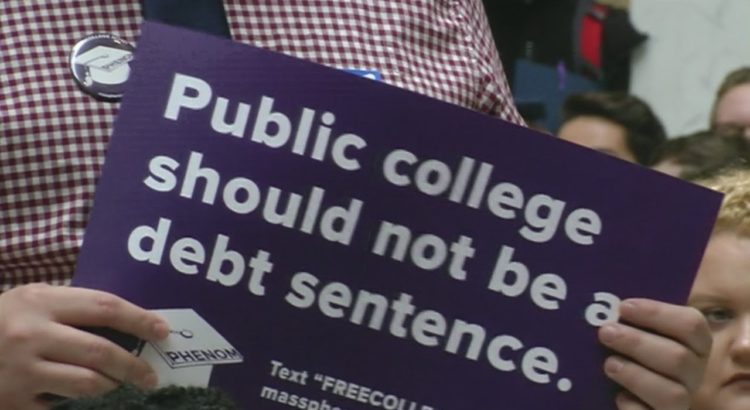
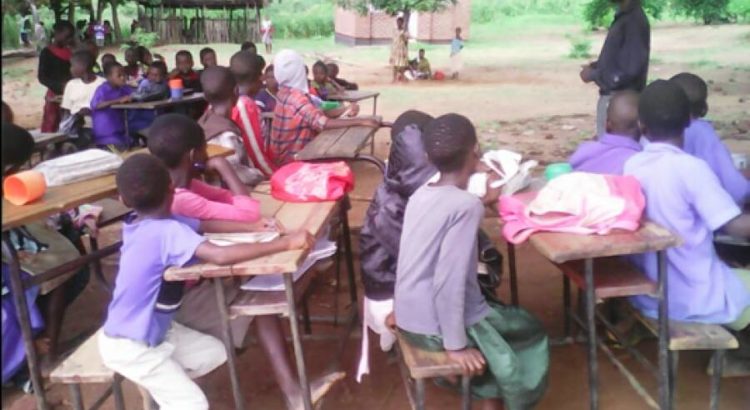
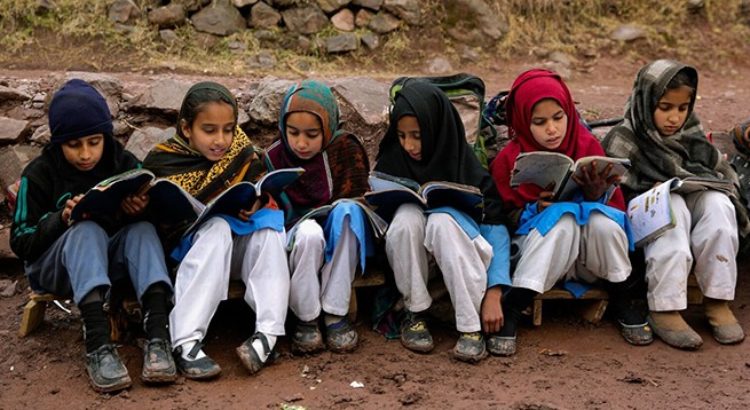
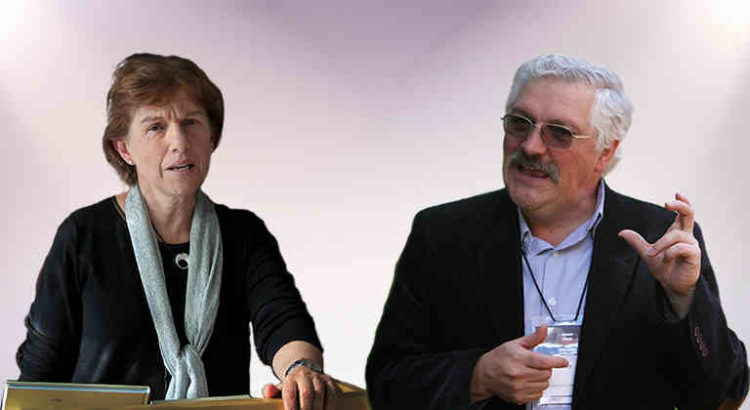
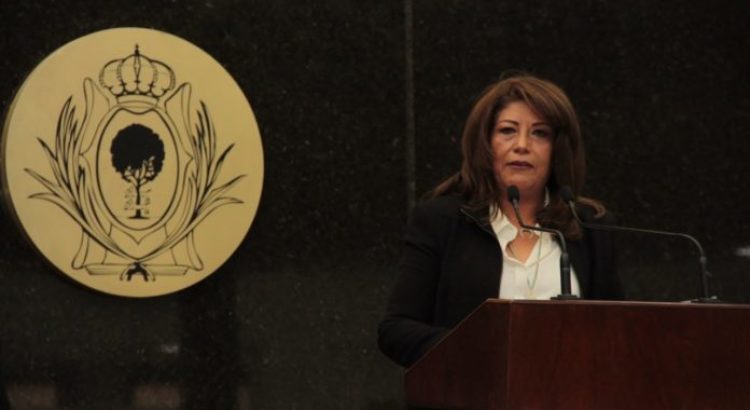

















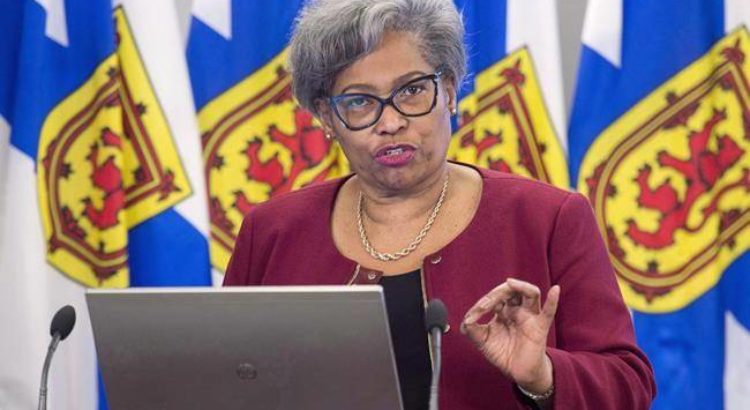





 Users Today : 232
Users Today : 232 Total Users : 35433600
Total Users : 35433600 Views Today : 293
Views Today : 293 Total views : 3372404
Total views : 3372404